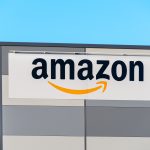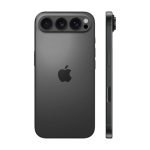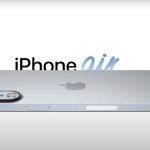McDonald’s, Popeyes, Dunkin’
- Major fast food chains have embraced celebrity partnerships over the last year.
- Brands like Dunkin’ and Popeyes can have the excitement of a new menu item without adding complexity.
- Chains seem isolated from any backlash associated with celebrity partners.
McDonald’s, Dunkin’, Tim Hortons, and other chains keep launching partnerships with celebrities, and analysts say it’s a smart move.
Just this week, McDonald’s launched its Mariah Menu, discounting different classic McDonald’s menu items in December, and Tim Hortons announced it would serve Justin Bieber branded Timbits, called “Timbiebs.” Starbucks also announced plans to sell Taylor Swift’s favorite drink alongside the release of her latest album.
Partnering with celebrities has been a boon to brands. McDonald’s kicked off the trend with the Travis Scott Meal, which was available for a month in the fall of 2020. It was the first in McDonald’s ongoing Famous Orders lineup, consisting of a Quarter Pounder with cheese, bacon, and lettuce, medium fries with BBQ Sauce, and a Sprite – Scott’s favorite meal at the chain.
The brilliance of the promotion was that McDonald’s got all the excitement that typically goes with a limited time offering, alongside the press from a celebrity partnership. But the meal didn’t add any complexity to the kitchen, because it used only ingredients already on the menu.
“Operationally, it’s very smart to take that approach,” Mark Kalinowski, CEO and founder of Kalinowski Equity Research, told Insider. McDonald’s franchisees have pushed for simplified menus, something many major brands adopted in 2020 and into 2021.
The Travis Scott meal was so popular that some locations ran out of Quarter Pounder ingredients. It was also enriching for Scott personally, as he netted at least $20 million from the deal, according to Forbes.
“Everyone saw McDonalds do well, so it’s not surprising to see some other concepts emulate what they did,” Kalinowski said, though not all have been as successful as McDonald’s.
The other important piece of these promotions is “culturally relevant entertainers,” who brands can tap into to attract younger customers, Kalinowski said. For example, Dunkin’ partnered with TikTok star Charli D’Amelio on a drink called “The Charli,” which became its most successful product launch ever.
Some of the celebrities working with fast food brands aren’t necessarily household names to the average McDonald’s or Burger King customer, but Saweetie, Lil Huddy, and Megan Thee Stallion are certainly known to younger, social media-savvy buyers.
“Part of the hope is if you get somebody to be a customer at age 17 or 23, hopefully they’re still a customer at 77 or 83,” Kalinowski said. Brands that use relevant celebrities to appeal to young customers now could potentially be adding lifelong customers without having to invest in any major menu changes.
“You’ve got this outrageous celebrity with no investment in R&D for the product, and the celebrity’s just so much value,” Edward Cotton, a brand consultant who has worked with Chipotle and Jamba Juice, told Vox.
Celebrity partnerships can be hugely profitable for chains, but they also come with risks. Brands partnered with celebrities who behave badly or face bad press can suffer, with Subway’s Jared Fogle as perhaps the most famous example.
Limited time menu offerings don’t seem to carry the same risk for brands, because they come with built-in expiration dates. Travis Scott is currently facing criticism and legal action for the mass casualty event at his Astroworld Festival performance where at least eight died and 300 were injured. None of this bad press is landing on McDonald’s, despite its public partnership with Scott only a year ago. The chain has launched several other Famous Orders in the meantime, effectively protecting it from any scandals associated with Scott or any other celebrities it might partner with.
Do you have a story to share about a retail or restaurant chain? Email this reporter at mmeisenzahl@businessinsider.com.
Powered by WPeMatico






